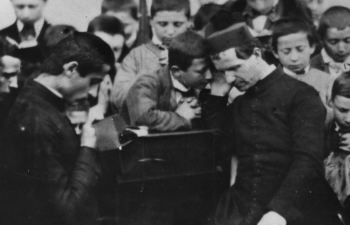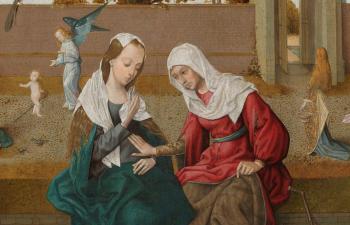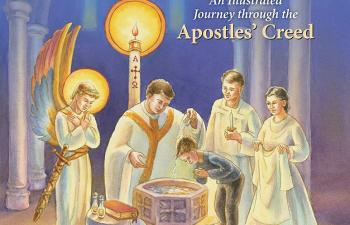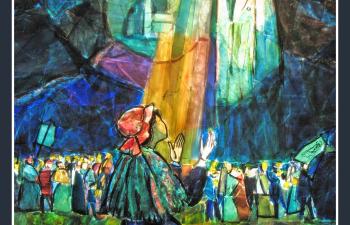‘The central miracle asserted by Christians is the Incarnation. They say that God became Man. Every other miracle prepares for this, exhibits this, or results from this. …every Christian miracle manifests at a particular place and moment the character and significance of the Incarnation.’ (C.S.Lewis, Miracles)
Before examining the particular miracles of Jesus, it would be good to consider what Lewis calls the ‘central miracle.’ He maintains that ‘all discussion of them (particular miracles) in isolation from it is futile’.
To illustrate his argument, Lewis puts forward an analogy. Supposing that we possess parts of a novel or a symphony; someone then comes along with a newly-discovered piece of manuscript claiming that this is the missing element of the work – the part upon which the whole theme of the symphony or the whole plot of the novel depends. Our task would then be to see whether or not this new passage did in fact ‘illuminate all the parts we had already seen and pull them together. … Even if the new passage or main theme contained great difficulties itself, we should think it genuine provided that it continually removed difficulties elsewhere. Something like that we must do with the doctrines of the Incarnation. Here, instead of a symphony or a novel, we have the whole mass of our knowledge. The credibility will depend on the extent to which the doctrine, if accepted, can illuminate and integrate that whole mass. It is much less important that the doctrine itself should be fully comprehensible. We believe that the sun is in the sky at midday in summer not because we can clearly see the sun (in fact, we cannot) but because we can see everything else.’
The rest of this online article is available for current Guild members.
This article is from The Sower and may be copied for catechetical purposes only. It may not be reprinted in another published work without the permission of Maryvale Institute. Contact [email protected]



















